- Home
- Mack Maloney
Strike Force Charlie s-3 Page 2
Strike Force Charlie s-3 Read online
Page 2
So there would be a game here today ….
* * *
The match began with very little ceremony.
Eli Port, the town banker, served as the lone official. He was almost as big as Sheriff Cook; Eli’s referee’s striped shirt gave no illusion of a thinner physique. He would not be running up and down the field today. As was his practice, when doing the work of several men, he stood at center field and watched the play as best he could by using a tiny pair of binoculars.
It didn’t make much difference, though. What followed hardly could have been called a game. Spiffy as they were, the visitors seemed lacking even the basic skills needed to play soccer. They couldn’t kick, couldn’t carry the ball with their feet, couldn’t hit it with their heads. Indeed, more than once they went to great lengths moving the ball toward their own goal. It was only the laughter from the stands that turned the visitors around and heading in the right direction. No passing, no defense, no strategy at all on the part of the foreigners. They were simply terrible.
It lasted for less than a half hour. The heat was so overwhelming, Eli finally called the match. Apache wound up winning by a very un-soccerlike score of 22-0.
The players on both teams were relieved to hear the final whistle. The Apache schoolkids quickly shook hands with their hapless opponents, then headed for the rear door of the nearby school gym. There was a shower room there. They would dive into it, en masse, still wearing their sweaty clothes.
The visitors meanwhile simply turned as one and hurried back onto the bus. Sheriff Cook saw his brother chase after them; a postmatch handshake between coaches would have been the proper thing to do. But the foreign coaches jumped onto the bus, practically closing the big silver door in Clancy’s face. Cook saw his brother begin to pull madly on his chin whiskers, a sure sign that he was very, very confused.
Cook wiped his brow a third time. The brand-new bus. The gaudy uniforms. The atrocious play. The whole thing was one of the strangest things he’d ever seen.
Where are those guys from again? he wondered.
* * *
It wasn’t much cooler aboard the bus. The men inside were used to the heat, but running up and down the hard, hot field for 30 minutes had taken its toll. There was no conversation among them now as they slumped into the cloth seats and began whispering prayers. Outside the dark-tinted windows they could see the small crowd of spectators drift past the bus. Some looked confused. Others were pointing and laughing.
The plan was to stay here, parked in Shade Hill, for the afternoon, moving to a KOA truck stop/campground 60 miles to the east as soon as darkness fell. It was a risk, but the people on the bus, including its very inexperienced driver, were in dire need of rest. No one onboard had slept in the past 48 hours. It was very important then that they all get as much sleep as possible in these next few hours, parked in plain view, on the edge of Shade Hill. There was no way of knowing when they’d get an opportunity like this again.
The group of men (they were not boys) finally settled down, some closing the shades on their scenic-outlook windows. Those who didn’t were mildly shocked to see a huge cloud of dust heading in the direction of the town. One minute, everything was clear, deep blue, and hot. The next, a tidal wave of sand swept over them, turning day to dusk. The bus began rocking; the wind became fierce and noisy. But those onboard actually welcomed the dirty blizzard. The more cover they had, the better.
That’s why it was such a surprise when they heard a loud pounding at the bus door. Nervous glances went all around. One of the men who’d impersonated a coach signaled for everyone to remain calm. Then he nodded to the driver, possibly the most anxious person on the bus. The driver pushed a handle forward and the door opened with a hydraulic swish.
Standing on the bottom step, sunburned, sweaty, and covered with a thin layer of dust, was Georgie Mann, assistant sports reporter for the LA Weekly Sun.
“You guys got a few minutes?” he yelled up to no one in particular, waving his very puny press badge. “I gotta do a story on you!”
A moment of awkward silence came and went. Finally, the “coach” beckoned Mann aboard.
Mann happily climbed up the steps and collapsed into the first empty passenger seat. He saw at least two dozen dark eyes staring back at him. It was nearly pitch-black aboard the bus, and not just because of the shuttered windows and the ongoing sandstorm. This was not a typical Greyhound bus, at least not inside. There were actually two compartments onboard. The partition was located about halfway down the aisle. A small door, closed and padlocked, led to the second, unseen section.
Strange, Mann thought.
The coach stood across the aisle opposite Mann’s seat, a clipboard pressed tightly against his chest.
“I speak just a little English,” he told Mann nervously. “And we don’t have much time.”
“That’s OK,” Mann replied. “This will be real down and dirty ….”
Mann took out his cell phone and dialed his number back in LA. His home computer accepted the call, making the connection with an annoying chorus of blips and bleeps. Using his phone’s keypad, Mann opened a new audio file in his computer, then entered a command for the PC to start recording the phone call. This done, he entered another command, which would allow him to transmit one image from his photophone every five seconds to be put into his PC’s JPEG file. Words and pictures, just like that. This was the lazy man’s way of reporting sports, and Mann had become very good at it. His hosts had no idea what he was doing, though. For some reason, they thought he was calling his mother.
For the next five minutes Mann asked questions from a prepared list, using his phone like a long-distance microphone. Where was the team from? What did they hope to accomplish during their tour of the United States? What international soccer stars did they hold in high esteem?
The coach’s answers were murky at best, each one either too short or too evasive or just plain dumb. The team was from “the South Asian Pacific.” They hoped to bring “peace and understanding” to anyone they met in the United States. They didn’t know or care about any international soccer stars. They knew very little about the World Soccer League. They’d never heard of Pele or Ubu. They had no opinion on the movie Bend It like Beckham.
“How about your schedule?” Mann finally asked in exasperation. “Can you at least tell me how many places you’re playing?”
The coach shook his head no, pointing to his ears as if he didn’t understand. Yet the clipboard he was holding had the word “Schedule” written right across it.
Mann already knew the story was a stinker. This coach was a moron, and the only pictures Mann got so far were of the gloomy, weird cut-off interior of the bus. But no story, no paycheck. Maybe he could fill up some page space with a simple map showing where the foreign team would be visiting during its tour.
So Mann gently took the clipboard from the coach. Flipping it around, he showed the man the word “Schedule” on it, saying, “This … this is what I need.” Indeed, the schedule was a map, with arrows pointing to the various places Mann assumed the team was expected to play. There were no dates, though, just the names of some cities and towns, numbered I through 9, and located mostly in the American South and Midwest. He snapped a bunch of phone-photos of it, hoping by now he’d transmitted enough data back to his home computer to scrape some kind of column together.
He handed the clipboard back to the coach. All Mann wanted now was to get off the bus, get back into his car, and drive like hell so he could be in LA before dark.
But he had one more question. He’d almost been mowed down not once but twice the night before, back on the docks.
“Where’s your other bus?” he asked.
Now a real jolt of tension went through the compartment. Those players pretending to be dozing sat straight up in their seats and began looking anxiously this way and that. A stern nod from the coach settled them down. He turned back to Mann and smiled.
“Well, I guess you’ve un
covered our little secret,” he said in his best English of the day.
“What do you mean?” Mann asked him.
The coach stood up and with a hand gesture motioned Mann toward the padlocked room divider.
“We’ve got a real scoop for you,” the coach said. “Some very interesting stuff.”
Tired and clueless, Mann cued up his photophone and walked toward the rear of the bus. One of the players undid the padlock and pushed the door open.
Mann walked in — but suddenly stopped. This second compartment looked nothing like the first. It was well lit and, he noticed, heavily soundproofed. On the floor were boxes and boxes of cell phones. And camping supplies, like tents and Coleman lanterns.
But most astonishing, the walls were lined with … weapons, including some kind of missiles. Fifteen of them at least. Are those Stingers? he thought.
Mann could only utter one word: “Wow!” The pistol was against the back of his head a second later. The trigger was pulled twice.
He was dead before he hit the floor.
Chapter 2
Guantánamo Bay, Cuba
The storm had blown in just after sunset. The rain was coming down in sheets; lightning was crashing. The thunder rolling across the bay was horrendous. With visibility down to zero for most of the mid-Caribbean, it was no weather for flying. Yet an unusual cargo plane was sitting on Gitmo runway number two, hard on the edge of the U.S. Navy base, its propellers redirecting the fierce downpour into a violent, driving spray.
Though all of the cargo plane’s insignia had been painted over, this aircraft belonged to the Iranian Air Force, an unlikely visitor to this American facility hanging by its fingernails off the eastern end of Communist Cuba. The plane, a two-engine French-built Transall-2, was here as a result of top-secret negotiations between the United States and Iran, part of a very hush-hush diplomatic arrangement. The United States kept several hundred Taliban fighters at Guantánamo Bay, illegal combatants captured during the war in Afghanistan. Many of these people were not Afghanis; in fact, terrorists from more than two dozen countries were being held in prisons here. Seven of them were citizens of Iran—highly placed citizens. In fact, all seven were related to someone on the governing board of mullahs that ran the troublesome Persian country, a place where family trees could spread for miles.
The aim of the secret negotiations was simple. Iran was holding seven top-echelon Al Qaeda fighters, none of whom was Iranian. The seven Iranian citizens the United States was holding were foot soldiers, with friends in high places. The United States wanted the Al Qaeda lieutenants for questioning and prosecution; the mullahs wanted their relatives back. It was a prisoner exchange then. Seven-for-seven. An even swap.
The howling storm was a complication no one had foreseen, though. The two sides had argued each other right down to the last comma on the exchange document, which was so classified, it would be burned and its ashes scattered after the transfer was made. Timing was the most important element. The Al Qaeda prisoners were being held at an Iranian border crossing, ready to be pushed across into U.S.-held Iraq as soon as word of the plane’s departure from Guantánamo was confirmed. Any delay, be it weather or mechanical, would be a deal breaker, the distrust between the two sides ran so deep.
That’s why the Transall-2 had to be loaded, had to get into the air, and had to make the all-important confirmation call back to Tehran.
So, hurricane or not, it had to take off.
* * *
Things had to go right on the ground, too. The isolated section of the air base was surrounded by no fewer than a hundred Marines, backed up by at least two squads of SEALs watching the waterfront nearby. (There would later be some dispute about the number of SEALs present.) There was also a Delta Force sniper team stationed in the hills above. This small combination army had been in place for hours, sweating out the brutal heat of the waning day, only to be soaked through now by the driving rains of night.
A stretch van would be transporting the seven Iranian prisoners from Camp X-Rray, the main Gitmo holding facility, to runway number two. The van would be escorted by two Marine LAVs, small, heavily armored tanklike vehicles. A U.S. State Department representative would also be accompanying the van, traveling in a separate car. His name was John Apple. His counterpart, a general in the Iranian Air Force, was serving as the copilot for the transfer plane.
Once the van reached the runway, Apple and the Iranian general would individually count each of the seven prisoners as they got out of the van and again as they climbed aboard the plane, this last bit of diplomatic nonsense insisted on by the Iranians. Only after both men were certain that the seven prisoners were safely aboard the plane would it be cleared for takeoff.
It was just one of many complicating factors in this anxious exchange that all seven of the Iranian detainees were named Khameni. In fact, five of them had the exact same name: Rasef Rasanjani Khameni. To avoid confusion, it was agreed early in the negotiations that the detainees would simply be known as K-1 through K-7.
The plane’s first destination would be Mexico, but only by necessity. When it touched down at Guantanamo, the Transall-2’s fuel tanks were nearly empty. It needed gas to get home. The United States had steadfastly refused to refuel the plane, though, just as the Iranians had steadfastly refused to allow U.S. fuel in its tanks. So, with a nudge from the United States, the Mexican government agreed to allow the plane to refuel, no questions asked, at a tiny military base in the Yucatan before starting its long flight westward. With another fuel stop in Fiji and a final one in Beijing, the plane was expected to arrive in Tehran 32 hours later.
A huge celebration would be waiting for it in the Iranian capital, timed to lead off the government’s national nightly news.
The seven fighters were expected to be greeted as heroes.
* * *
The prisoners’ van arrived a few minutes late, this as the rain grew more torrential and the winds picked up to 40 knots. The van pulled up to the back of the waiting airplane, along with Apple’s car. Conversation was nearly impossible around the loading ramp, thanks to the gusting wind, whipped up further by the gyrating turboprops. The Iranian general was waiting impatiently at the bottom of this ramp. He, too, was soaked. He’d been nervously watching the line of Marines standing close by. Both sides wanted to get this over with quickly.
Apple and the Iranian general met at the ramp, but there were no handshakes. They simply stood side by side, ready to count aloud as each detainee stepped off the small bus. Per the agreement, each prisoner was still shackled by hands and feet and had a black mask pulled down over his head. Each was wearing a bright orange jumpsuit adorned with his ID — K-1, K-2, and so on — painted in large black letters on the back.
The process began. Apple and the Iranian general sounded off as each man emerged from the van. Then, as two Marines escorted each detainee to the bottom of the ramp, the general would check off a number corresponding to the back of the prisoner’s uniform. The detainee would then be allowed to climb up into the plane and be seated. At U.S. insistence, the shackles and hoods would not be removed until the Transall-2 was airborne.
The loading process took longer than expected because the detainees came off the van out of order. They were rearranged in their seating by the plane’s pilot, and only then did Apple and the Iranian general agree that the exchange was complete.
Again, there were no handshakes. The Iranian general simply climbed up the ramp and closed it himself with a push of a button. Not 30 seconds later, the plane’s engines revved up and it began pulling away. The Marines slowly withdrew from the runway. The Transall-2’s pilots added more power, their props now screeching in the tempest. There was no conversation with the base’s air traffic control tower. The plane immediately went into its takeoff roll.
It needed the entire length of the 6,000-foot runway, but somehow, someway, the plane finally went wheels up and, in an explosion of spray and exhaust, climbed into the very stormy night.
* * *
Apple returned to his living quarters just outside Camp X-Ray, went directly to his kitchen cabinet, and broke out a bottle of cheap Cuban whiskey. He poured some over a few melting ice cubes and, with the thunder still crashing outside, drained the contents of his glass in one noisy gulp.
He was three weeks away from retirement. Full pension, house on Chesapeake Bay. The works. That this pain-in-the-ass deal was finally over made him very happy. All he had to do was phone in a report to his boss in Washington; then he would go to sleep for about a week. After that, he could start thinking about packing his government bags for good.
He poured himself another healthy drink, then padded into the living room of his glorified hut. He picked up the secure scramble phone to Washington, but before he could punch in the first number he heard a commotion outside. He could see through his picture window that a Humvee had screeched to a halt on his sandy front lawn. Six Marines fell out of it; two immediately ran up to his front door. They did not knock, didn’t bother to ring his doorbell. They simply burst in, soaking wet, M 16s pointing everywhere. They looked scary.
“What’s happened?” Apple demanded of them.
The Marines just grabbed him by the shoulders and carried him out of his hut.
“You’ve got to come with us!” one of them yelled at him.
* * *
The ride up to the detainee compound was the most hair-raising event of Apple’s life. The Humvee driver was a kid no more than 18, and the other Marines were screaming at him to go faster … faster! … faster! The kid followed orders and drove the winding, muddy, very slippery road like a madman, nearly sending the Humvee hurtling over the cliff many times.
Somehow they made it to the main compound gate. This barrier was open — never a good sign. The Humvee roared right through, drove the length of the barbed-wire encirclement and down another series of hills to an isolated plywood barracks. This was where the seven guys named Khameni had been kept during their incarceration.

 Strike Force Bravo s-2
Strike Force Bravo s-2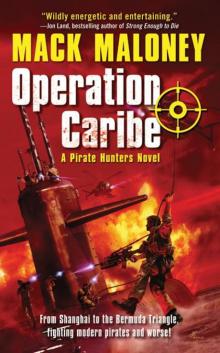 Operation Caribe ph-2
Operation Caribe ph-2 Beyond Area 51
Beyond Area 51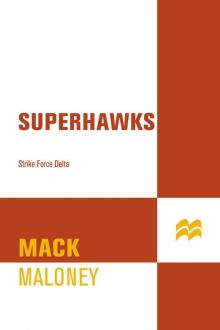 Strike Force Delta
Strike Force Delta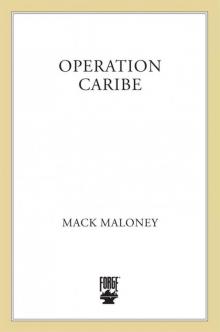 B00447820A EBOK
B00447820A EBOK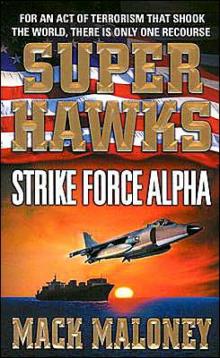 Strike Force Alpha
Strike Force Alpha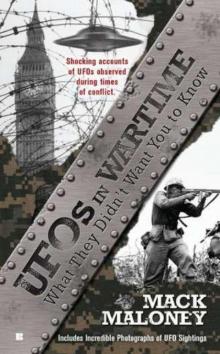 UFOs in Wartime: What They Didn't Want You To Know
UFOs in Wartime: What They Didn't Want You To Know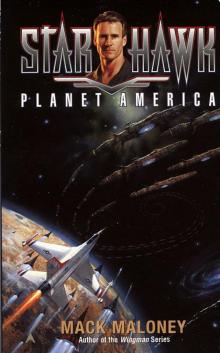 Planet America s-2
Planet America s-2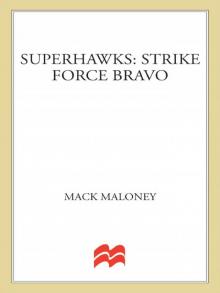 Strike Force Bravo
Strike Force Bravo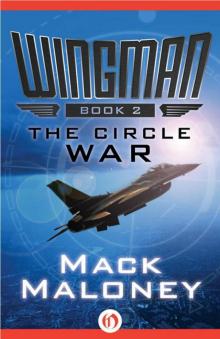 The Circle War w-2
The Circle War w-2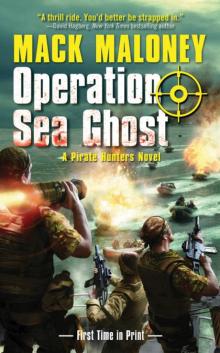 Operation Sea Ghost ph-3
Operation Sea Ghost ph-3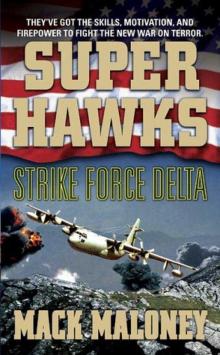 Strike Force Delta s-4
Strike Force Delta s-4 The Wingman Adventures Volume One
The Wingman Adventures Volume One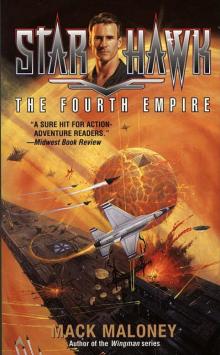 The Fourth Empire s-3
The Fourth Empire s-3 Battle at Zero Point s-4
Battle at Zero Point s-4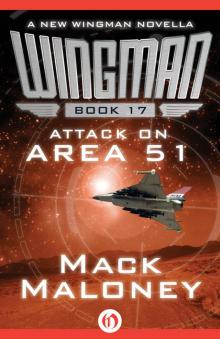 Attack on Area 51
Attack on Area 51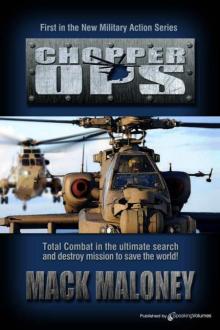 Chopper Ops
Chopper Ops B003IKHEWG EBOK
B003IKHEWG EBOK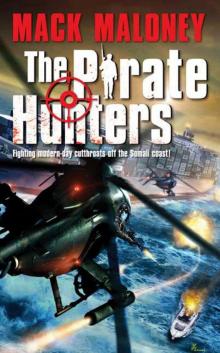 The Pirate Hunters ph-1
The Pirate Hunters ph-1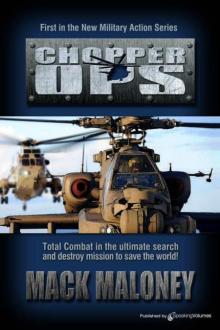 Chopper Ops co-1
Chopper Ops co-1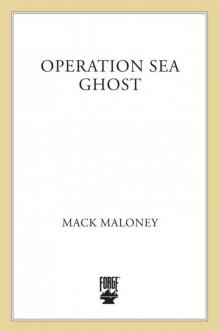 B005J4EW5G EBOK
B005J4EW5G EBOK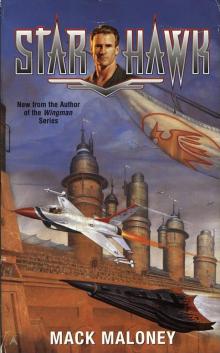 Starhawk s-1
Starhawk s-1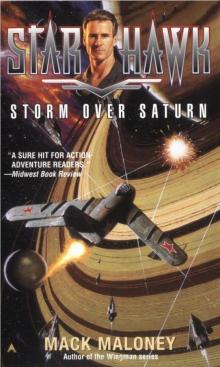 Storm Over Saturn s-5
Storm Over Saturn s-5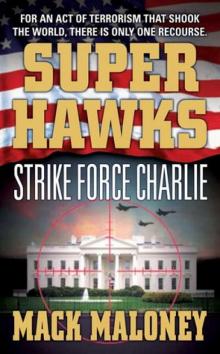 Strike Force Charlie s-3
Strike Force Charlie s-3